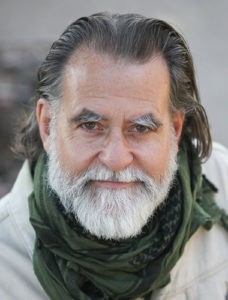Reading literature can help Christians develop the Christ-like empathy needed to bring more compassion and healing to a divided world, according to author and scholar Karen Swallow Prior.
The Southern Baptist seminary professor spoke during a Sept. 1 webinar examining the development and importance of virtue in nurturing the lives of individuals, congregations and society. “Forming Communities of Virtue” was an hour-long virtual conversation hosted by the Baptist Studies Center and the Siburt Institute for Church Ministry, both at Abilene Christian University in Abilene, Texas.

Karen Swallow Prior
Experiencing life through the eyes of literary characters, especially those widely different from themselves, gives readers practice in relating to those with whom they are often at odds, said Prior, research professor of English, Christianity and culture at Southeastern Baptist Theological Seminary in Wake Forest, N.C., and author of On Reading Well: Finding the Good Life through Great Books.
“We are living in extremely polarized times, even in church, so walking through someone else’s experiences and point of view, that is what we need as the body of Christ to listen to one another, to understand one another, to hold back before we offer our opinion or judgment and to walk through things with people,” she said.
Prior was joined on the panel by Richard Beck, psychology department chair at ACU and author of Hunting Magic Eels: Recovering an Enchanted Faith in a Skeptical Age. The webinar was moderated by Myles Werntz, director of the Baptist Studies Center, and David Kneip, the institute’s associate director.
The panelists shared how their respective disciplines of literature and psychology can contribute to the practice of virtues such as humility, courage, faith, hope and love, and how these and other qualities can strengthen relationships in church and culture.
Prior said her book examines classical and Christian virtues presented in literature and also relays her encounter with those values in her reading growing up in a Christian home. “I was learning things about truth — capital T — that I wasn’t learning in church or Sunday school.”
What literature did that religious education didn’t was to convey the feelings and perspectives of disparate characters confronted with instructive moral dilemmas and experiences.
What literature did that religious education didn’t was to convey the feelings and perspectives of disparate characters confronted with instructive moral dilemmas and experiences, she said.
“Literature is this gift of God, who is the Word. It is a gift that uses words, and through these words and stories we can actually learn what kinds of mistakes we can make as human beings and how we can avoid these mistakes and be wiser,” Prior said. “I approached it as an art form that helps us to find and make meaning and find our own purpose in life.”
She relied on the thought of classical philosophers and ethicists to unpack how virtues like faith, hope and love can be honed through practice. As an example, Aristotle emphasized that “virtue becomes habit by practice,” she said. “This is the practice we are lacking and what literature offers.”
But getting churches and individuals to fully embrace virtuous living requires a psychological and spiritual reorientation, Beck added.

Richard Beck
The process includes recognizing the need and developing an intention for the renewed focus, then developing practices to make the living of virtues an automatic, unconscious activity of the brain, he said. “I talk about virtue formation as learning an instrument. It takes a lot of practice, but it also needs to become second nature.”
Spiritual formation is needed to encourage and understand the need for embarking on the process in the first place, he explained.
Without undergoing these conscious and unconscious changes, qualities like kindness are rarely practiced on anyone except friends, family and fellow church members, Beck said. “Kindness is still pretty tribal. It’s easy to be kind to people in my tribe. It’s even harder with someone who disagrees with me on masks or vaccines.”
Beck said church talks he gave after the publication of his 2011 book Unclean: Meditations on Purity, Hospitality, and Mortality, revealed that many congregations lacked the capacity to relate emotionally with those outside their own communities.
“I was looking for virtue-forming practices that were socially oriented that would bring us into contact with people we would not normally approach,” he said, noting that instead, he found gaps between imagination and virtue in many communities. “I noticed churches lacked certain social, relational and emotional capacities.”
Many congregations lacked the capacity to relate emotionally with those outside their own communities.
Beck said he also documented in churches and others a universal tendency to associate foreign values and practices “with the idiom of contamination and dirt” that is classified as “disgust psychology.”
The challenge is that such attitudes are reflexive and unconscious for many people: “It’s going to take you a long time to practice your way out of that automatic response.”
To begin making Christ-like virtues a matter of habit instead, Beck suggested adopting a behavioral pattern in which a trigger for anxiety or anger is met with prayer or taking a deep breath, among other techniques found in works such as The Little Way of Saint Therese of Lisieux.
“This moves the needle,” he said. “You are not instinctively courageous, but you have a plan.”
Related articles:
Two words, two virtues, to help America move forward | Opinion by Stephen Shoemaker
Truth Decay: How truthfulness is related to humility | Opinion by David Gushee


